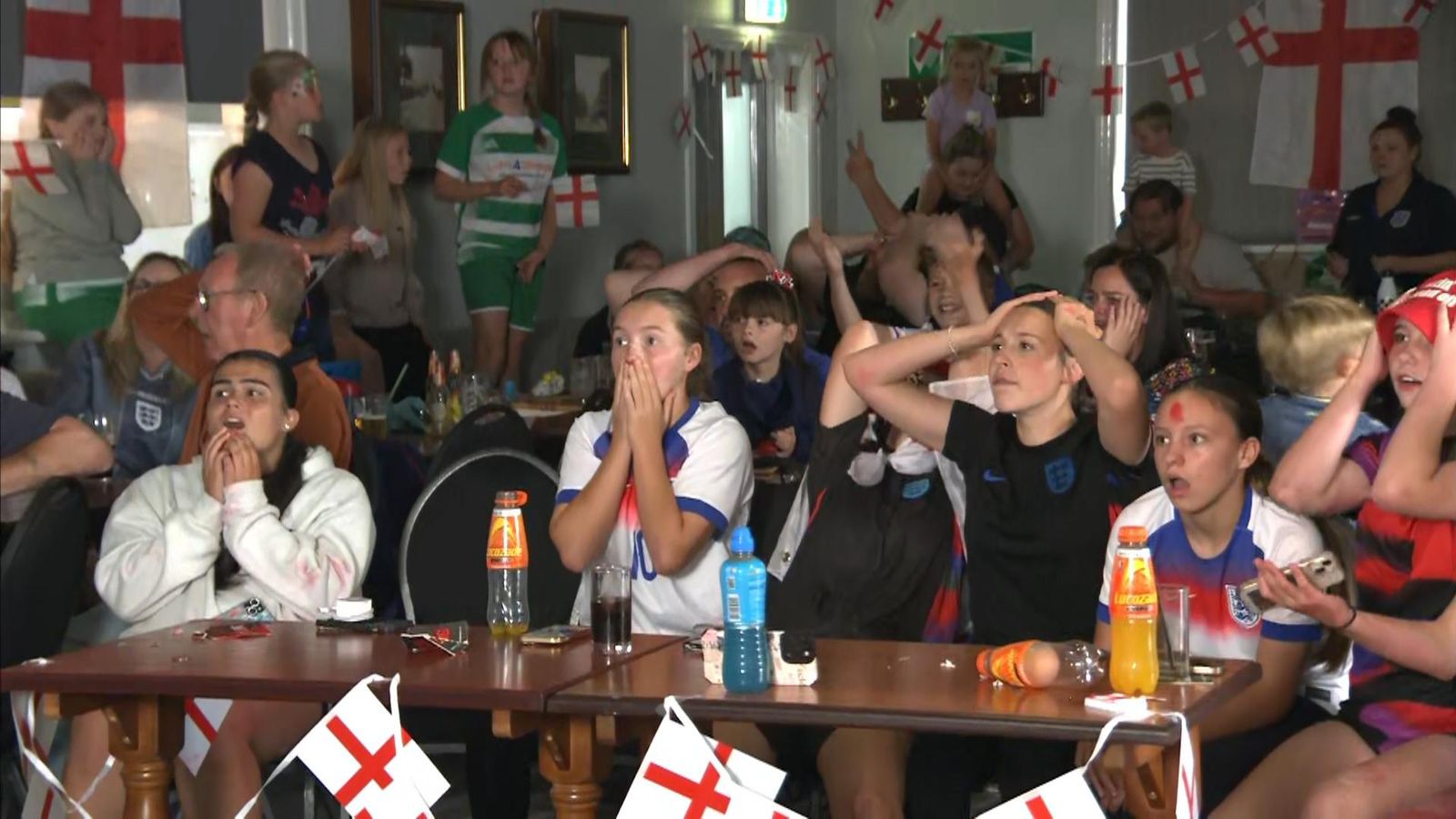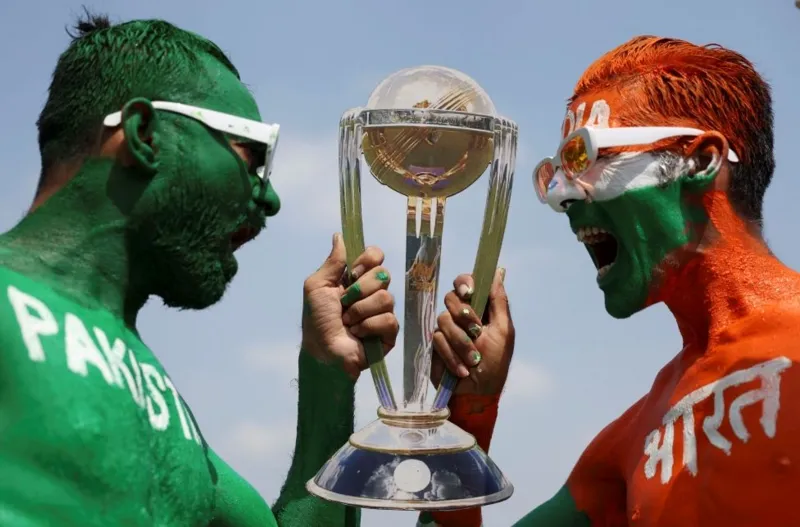Israeli hostages confirmed dead after army finds six bodies in Gaza
Six Israeli hostages in Gaza have been confirmed dead by their families, hours after Israel's army said it had found bodies in the territory.

The bodies of Carmel Gat, Eden Yerushalmi, Hersh Goldberg-Polin, Alexander Lobanov, Almog Sarusi, and Ori Danino were brought back to Israel, the Israeli military said in a statement.
All were abducted by Hamas-led militants on 7 October, with their bodies found in an underground tunnel in southern Gaza on Saturday, according to the Israel Defence Forces.
"According to our initial estimation, they were brutally murdered by Hamas terrorists a short time before we reached them," military spokesperson Rear Admiral Daniel Hagari said.
Hamas and its armed wing did not immediately comment on the accusations.
US President Joe Biden said he is "devastated and outraged" by the news.
"It is as tragic as it is reprehensible. Make no mistake, Hamas leaders will pay for these crimes," he said.
"And we will keep working around the clock for a deal to secure the release of the remaining hostages."
US vice president Kamala Harris and secretary of state Antony Blinken also shared their condolences with Mr Goldberg-Polin's parents.
These six deaths mark a pivotal moment in Israel
The news that the bodies of six hostages have been recovered from Gaza has sent Israel into shock.
The names and faces of every hostage are familiar to all Israelis: there is collective national grief at the death of every one of them.
Everybody knows the story of how each hostage was taken on October 7th; they know their hobbies, jobs, past lives. Their desperate plight, and the suffering of their families praying for news, has become the fabric of society here.
The phrase "Free Hersh" is graffiti on walls or hangs from banners on virtually every street in the neighbourhoods close to where I live in Jerusalem.
Yellow ribbons are tied around lampposts, pillars, tree trunks, you name it.
Posters, with the photos of the 251 taken, are posted in shop windows, doctors surgeries, on billboards and through the walkway at Ben Gurion airport so even abroad, their fate is not forgotten.
These six young men and women were the living, some of the few who were supposed to come out alive and be reunited with their families after almost a year in captivity.
That hope is now extinguished. Confirmation of their deaths will reverberate hard; grief will quickly manifest into anger.
The IDF believes they were killed by Hamas, a conclusion likely based on forensic evidence of bullet traces, but many in Israel will blame Netanyahu.
It has now dawned on the hostage families and protestors that their prime minister is prioritising the military campaign over a hostage deal.
They might have long feared it, and chosen not to believe it, but the argument between Netanyahu and defence minister Yoav Gallant at a Cabinet meeting on Thursday night was the final proof.
The two argued bitterly over Netanyahu’s insistence that Israeli forces remain in parts of Gaza during any truce and Gallant accused the prime minister of deliberately ruining ceasefire negotiations.
Gallant is supported by the military and security establishment. Netanyahu is supported by the extreme right in his cabinet.
Already this morning Yair Lapid, the former prime minister and official leader of the opposition, has tweeted in criticism of Netanyahu: "Instead of doing everything to bring them home, (he) is doing everything to stay in power."
The massive protests, a fixture of Israeli society every Saturday evening, will now likely grow in size and anger.
However, despite their size and passion, they have so far failed to sway Netanyahu.
But the news of the six bodies is a pivotal moment here.
The protestors will no longer be shouting for a hostage deal, no longer pleading for the government to bring them home – they will be fighting to remove Netanyahu from power.
His parents became perhaps the most high-profile relatives of hostages on the international stage, meeting with Mr Biden, Pope Francis and addressing the UN.
On 21 August, they addressed a hushed hall at the Democratic National Convention, where the crowd chanted: "Bring them home."
A Hamas video in April showing Mr Goldberg-Polin speaking under duress sparked new protests in Israel urging the government to do more to secure his and others' freedom.
"With broken hearts, the Goldberg-Polin family is devastated to announce the death of their beloved son and brother, Hersh," the family said in a statement.
"The family thanks you all for your love and support and asks for privacy at this time."
Confirmation of each death was shared by Israel on X.
The family of Ms Yerushalmi said: "We share with great sorrow that our beloved Eden was murdered in Hamas captivity."
Following news of the deaths, Israel's President Isaac Herzog apologised to the families of the victims for "failing to bring them home safely".
A forum of hostage families called for a massive protest on Sunday, demanding a "complete halt of the country" to push for the implementation of a ceasefire and hostage release.
The group also laid the blame for the six deaths at Prime Minister Netanyahu's door, saying they were a "direct result of failing to sign a deal".
"Over the past few months, eight hostages were rescued alive through military operations, compared to 105 hostages released in a deal last November," said the Hostages Families Forum in a statement.
The war was triggered when Palestinian Islamist group Hamas attacked Israel on 7 October, killing 1,200 and taking about 250 hostages, according to Israeli tallies.
At least 40,691 Palestinians have been killed and 94,060 injured in Israel's subsequent military offensive in Gaza, the enclave's Hamas-run health ministry said in a statement on Saturday.
-SKY NEWS







